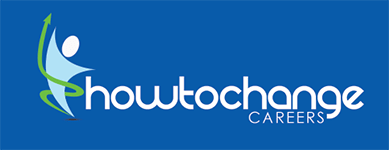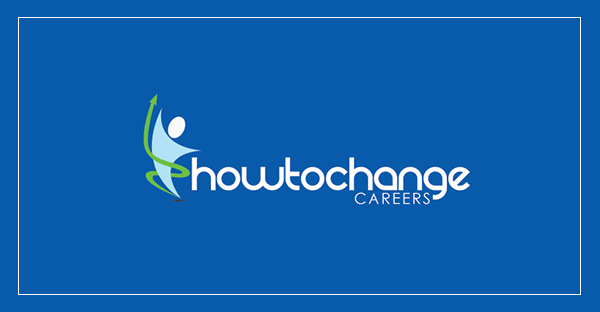Strategies and Questions
An informational interview is a great way of building on your networking contacts and exploring career areas you may be considering.As the name suggests, it is not about getting a job, although it could be a first step towards finding one.
The benefits of the informational interview
So what do you stand to gain from this kind of interview?

Knowledge
First and foremost, it is all about building up your knowledge and understanding of areas of work you are thinking about. Whether you are at the exploratory stage or ready to focus on your job search, you can gain useful inside information on your new career ideas.
Contacts
You will also gain and nurture contacts you have made. Remember the secret of career and job search networking is not to expect instant results. By building relationships with people you can lay the foundations of future benefits for yourself.
Personalised support
Get personal advice and feedback on the next steps you should be taking in planning your career change or job search.
Work shadowing
If you are lucky, an informational interview can lead to opportunities for work shadowing or work experience, which can give you an even greater insight into the work and may even lead to employment in the longer term.
Confidence
You build your own confidence in meeting with others which will help you in your networking generally. Informational interviews are generally relaxed and informal, so are a lot easier to manage than formal job interviews.
Setting up an informational interview
For example, you may meet someone at a networking event or perhaps just socially and you realise that they could be a source of valuable information for you as you research and plan your career change.
You can ask a few questions then and there, but you realise that you would like to ask a whole lot more and taking up their time in the present context might not be appropriate.
So you simply ask them if you can meet again.
‘I am really interested in the kind of work you do and I wonder if we might meet up some time in the next week or so, so I can find out a bit more. I realise you are very busy, so obviously this would be at your convenience.’
Alternatively, you may be given the contact details someone from a friend or colleague, in which case you can either write, email or telephone.
Emails are very easily skimmed over and deleted, so it is probably better to start the old fashioned way with a letter.
Make sure that you start by explaining who you got their contact details from so they know you are not a completely ‘cold call’. Then tell them about your reason for getting in touch, making it very clear that you are not looking for a job at this point.
Let them know that you are only looking for a short appointment and that it is of course, at their convenience. End by mentioning that you will be in touch by phone in the next few days.
Be well prepared
Do not shoot yourself in the foot by going in unprepared. Make sure you do the following:
- Do your homework. Show you have done some relevant research in advance so they know you are serious.
- Be professional – turn up on time, dress appropriately and keep to the time agreed for the meeting.
- Have your list of questions ready (see below) and stick to the topic.
- Be prepared to share some positive information about yourself, but keep the focus on them.
- At the end of the meeting, always ask if they can recommend any further useful contacts.
- Send a thank you letter to show you appreciate the time they have given.
Questions to ask at an informational interview
Remember this is your chance to ask for the kind of information that you will not find on the internet or in careers books, so don’t waste your opportunity by asking about things that are available elsewhere.
Here are a few good interview questions you can try…
The job
- What does your job involve on a day to day basis?
- What does a typical day look like?
- Is there a set routine or does the work vary across the year?
- What are the typical working conditions? For example..
- What are the work place conditions and culture?
- Are unusual working hours required?
- Is travel away from the main office necessary?
- How much contact with others is there – colleagues and clients?
- What kind of people are ‘typical’ clients?
- Are there any restrictions on dress, appearance and behaviour?
- How stressful is the job?
- What are the good and bad points of the job from their point of view?
- What are the current projects they are involved in?
- I read about …. in the press recently. What else is happening in your sector?
Getting in
- What entry qualifications are useful over and above the basic entry requirements?
- What particular skills, qualities and experience will increase the chances of successful entry to this career?
- Where are jobs advertised and which professional journals should I be reading?
- What is the job market like generally at the moment for this field of work?
- How difficult is it to enter this career area?
- Is the job available only in certain parts of the country?
- What are the starting salaries you might expect in this occupation?
- How helpful are the relevant professional bodies for this occupation?
- What would impress them on a cv or resume from an applicant?
- What advice would they offer to a new entrant from their position of experience of the job?
Getting on
- What further training might be required after entry?
- What would typical career progression look like?
- How easy is it to progress?
- What path has your career followed?
- If you were to have your career over, what if anything would you do differently?
- Is there anything I should have asked about this role that I have missed?
- Is there someone else you can suggest who might be able to help me further?
And if you feel the interview has gone particularly well and you have built up a good rapport…
- Would there be any possibility of spending a half day work shadowing you or a colleague?
- Is there any project work that I might be able to contribute to on a voluntary basis?
Ready to give it a try?
For many career changers, there is sometimes a reluctance to try an informational interview approach as it is seen by some as being a bit pushy.
If you are hesitating, just ask yourself…
What’s the worst that could happen?
The worst is probably nothing more than that they politely decline. But if you don’t take the plunge and ask the favour you will never know where this contact and this interview might take you.
So go on. Give the informational interview a try!



Leave a Comment